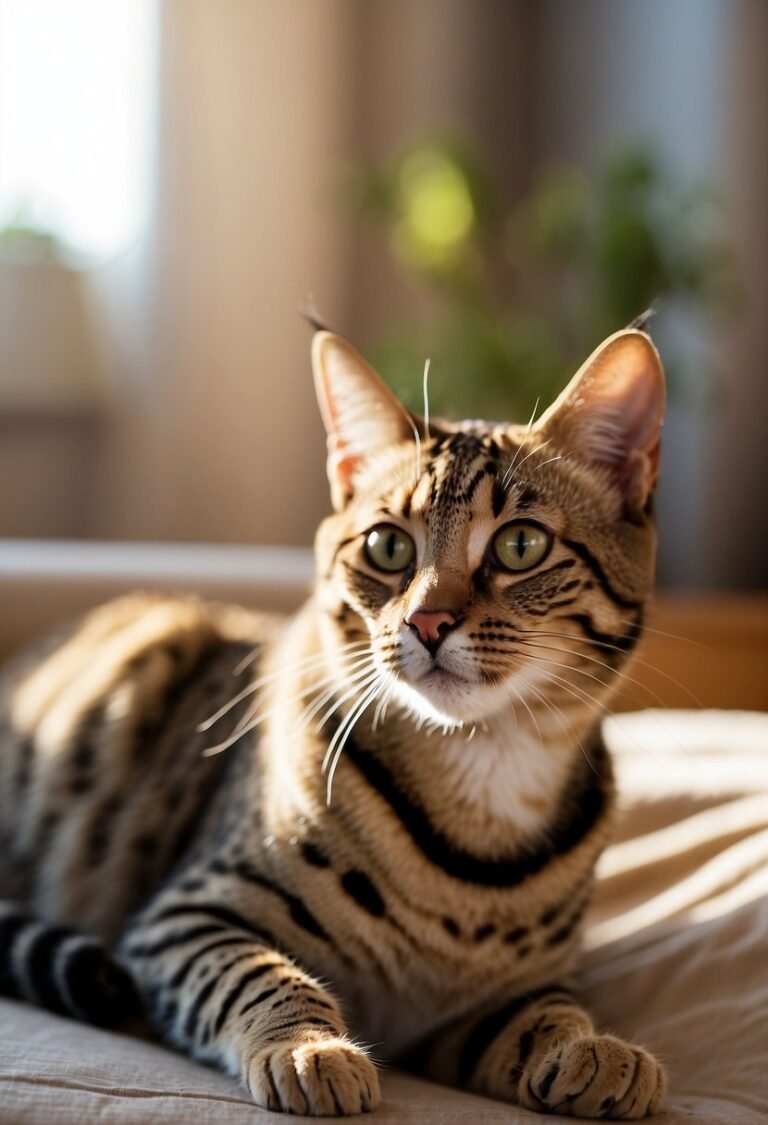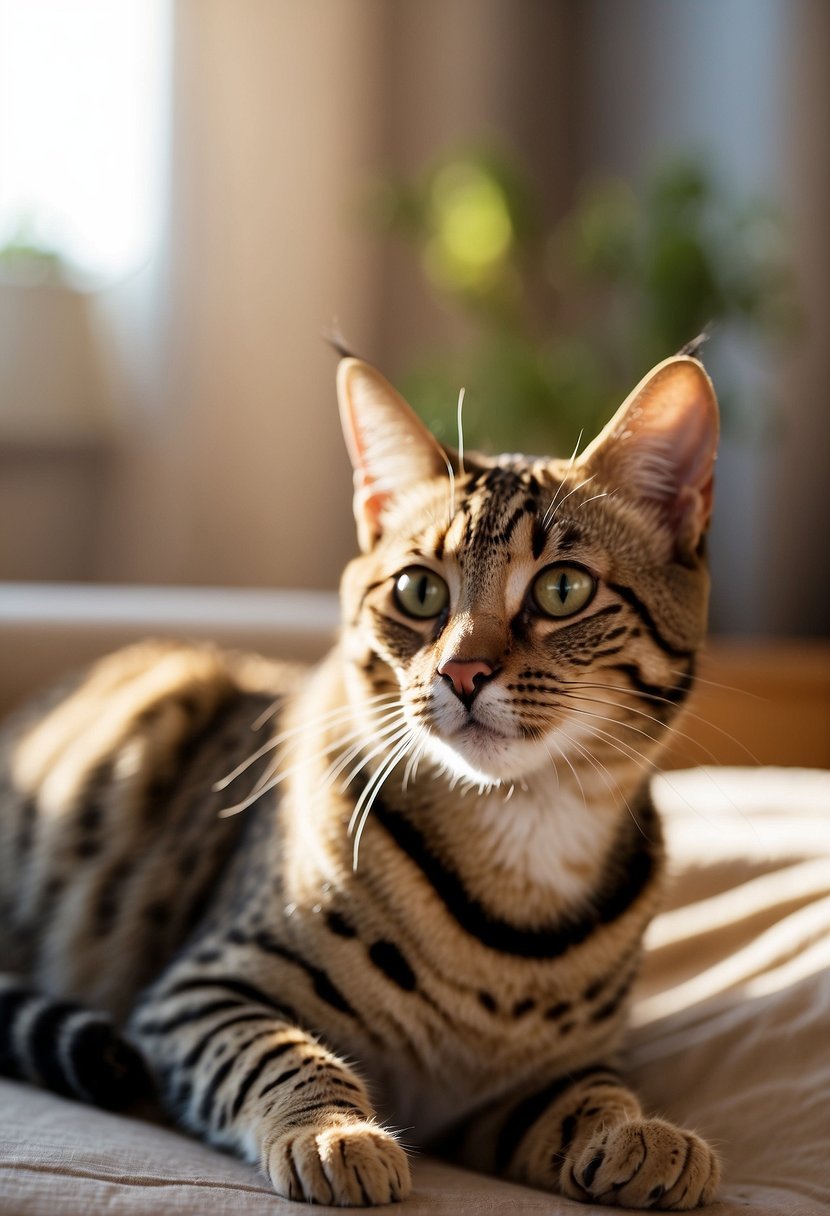Savannah Cat Care: Essential Tips for a Healthy Pet

Introduction to Savannah Cats
The Savannah cat stands out as a remarkable example among cat breeds.
With an elegant and wild appearance, Savannah cats boast a lineage that traces back to the African serval.
You’ll recognize them by their tall stature, long legs, big ears, and spotted coat very reminiscent of their wild ancestors.
| Trait | Description |
|---|---|
| Size | Large |
| Coat | Spotted |
| Ears | Large |
| Leg Length | Long |
A hybrid creature, the Savannah cat enjoys the distinction of domestic coziness with an exotic twist.
Your Savannah cat is likely to be active and playful, bringing lively energy to your home.
They are also known for their loyalty, often showing a dog-like attachment to their human companions.
Remember, the size of a Savannah can vary.
Males typically range from 15-20 pounds, while females are a bit smaller.
When considering a Savannah, it’s essential to prepare for a pet that demands space to leap, play, and explore.
Exhibiting a generous mix of traits, the Savannah cat’s wild genes contribute to its distinctive look and behaviors, while the domestic side gives it a softer, more sociable edge.
Caring for these cats requires understanding their special needs — such as a higher-quality diet — and providing plenty of interactive play.
In your journey to learn more, it’s valuable to explore mindful practices to improve emotional balance while bonding with your Savannah, enhancing the joy of your shared environment.
Caring for Savannah Cats

Savannah cats, a unique blend of domestic felines and the wild African serval, are known for their striking appearance and lively temperament.
Taking good care of your Savannah cat ensures they live a happy and healthy life.
Nutrition
Your Savannah’s diet should be high-quality and rich in protein.
Considering their active nature, these cats might require more calories than typical cat breeds.
Always provide fresh water, and remember that a balanced diet sustains their energetic lifestyle.
Grooming
Savannah cats boast a short, easy-to-care-for coat.
Weekly brushing is enough to keep their fur in top condition.
During these grooming sessions, examine their skin for irregularities.
Exercise
These cats are highly active, demanding plenty of playtime and mental stimulation.
Interactive toys and puzzles can keep your Savannah engaged.
Health Care
Regular veterinary checkups are essential.
Ensure vaccinations and parasite preventatives are up-to-date to maintain optimal health.
Safety Measures
Savannah cats are curious by nature, so kitten-proof your home.
Keep an eye out for potential hazards like open water sources and accessible small spaces.
| Health Tips | Safety Advice |
|---|---|
| Regular checkups | Secure windows and doors |
| Parasite control | Remove toxic plants |
| Skin examination | Check for small openings |
By understanding and catering to the needs of your Savannah cat, you’ll be rewarded with an affectionate and lively companion for years to come.
Behavior and Training

When it comes to your Savannah cat, understanding their behavior is key to a successful training journey.
Recognized for their intelligence and high energy levels, Savannah cats often display a strong curiosity and love for exploration.
Training Sessions:
- Keep trainings consistent, aiming for 15-20 minute sessions.
- Practice at the same time each day to develop a routine.
- Begin with one trick at a time to avoid overwhelming your cat.
- Utilize positive reinforcement like treats or praise, steering clear of negative disciplines.
Techniques:
- Clicker training can be highly effective, marking exactly when your cat does the correct behavior.
- Begin with simple commands and gradually increase difficulty as your Savannah cat learns.
Tips for Success:
- Use rewards your Savannah cat loves.
- Engage in regular sessions to reinforce learning.
Remember to respect your cat’s unique personality and pace.
Patience will yield the best results.
For further advice, learn from experts on how to train your Savannah cat.
Remember, a well-trained Savannah cat is typically a happy cat, as mental stimulation is key to their well-being.
Enjoy the training process and the special bond it creates between you and your feline friend!






